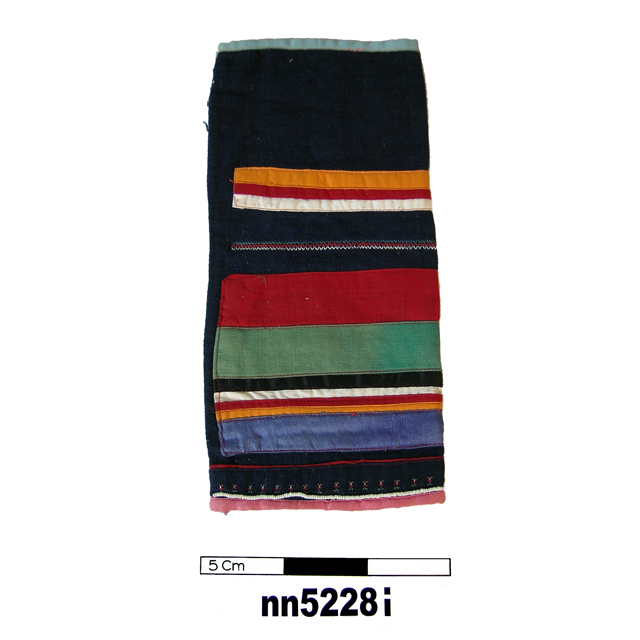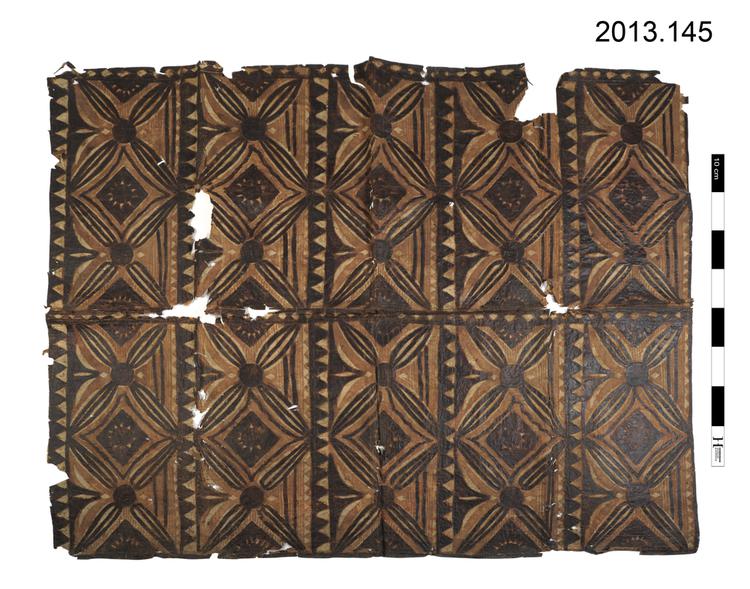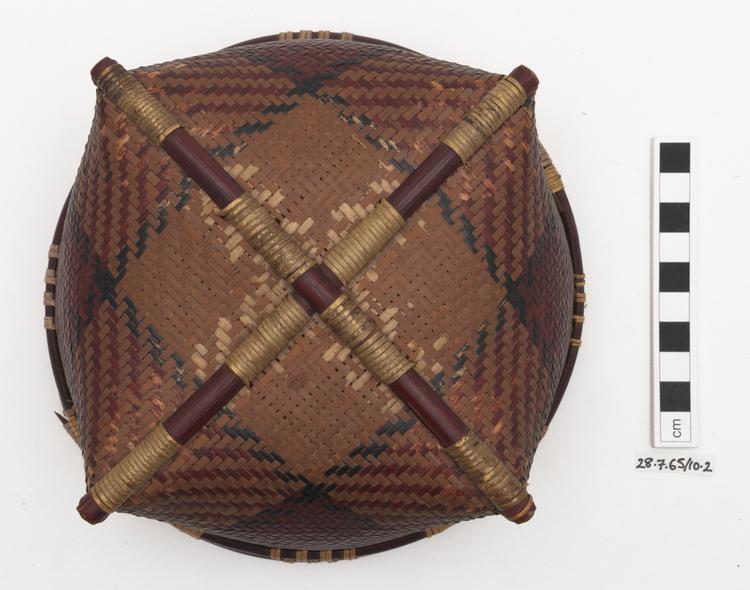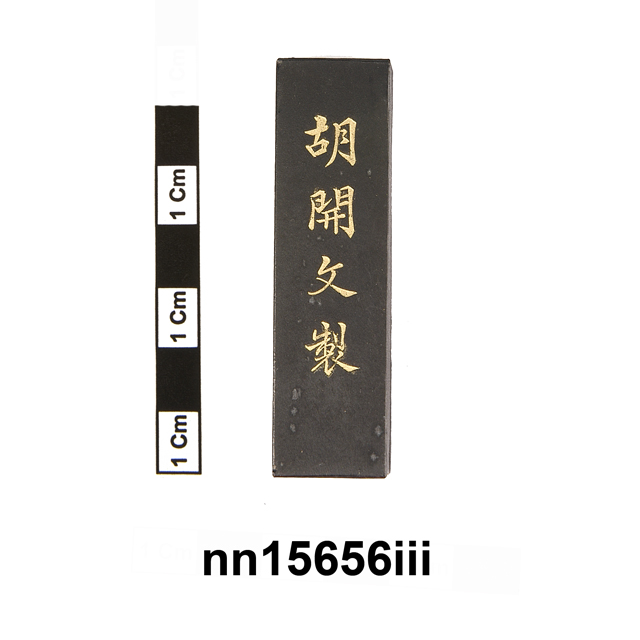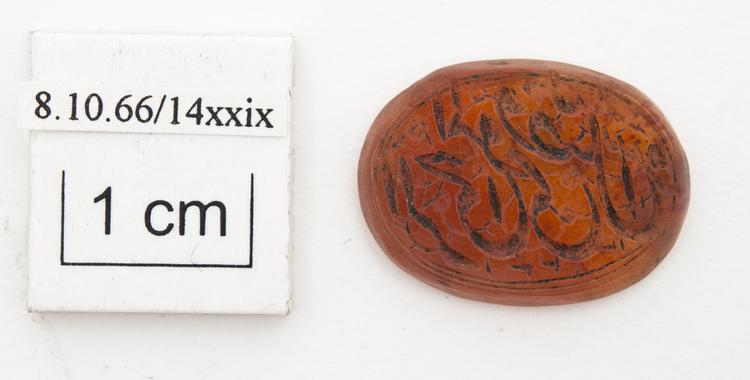
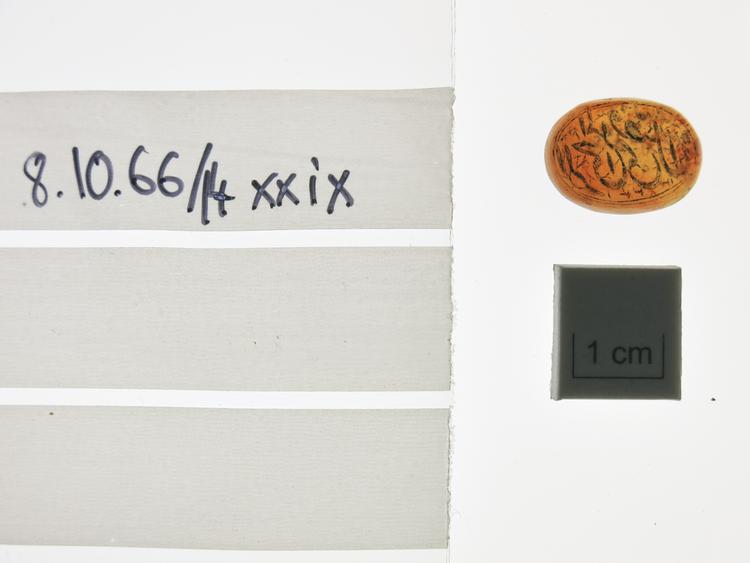
Oval seal made of carnelian, finely engraved with an inscription in Arabic on one side.
Seal to be mounted on a ring, Iran. Major R. Jackson who donated this ring seal to the Horniman Museum gives the following account of how it would have been used: “[Such seals were used] frequently by merchants and when a deal was consummated each party handed over his seal to the other who, after wetting the document to be sealed with his licked thumb, pressed the seal upon an ink pad and then reproduced it on the moistened document!” However, this seal served more than just an economic purpose. As with many Islamic rings our seal is amuletic, naming the owner and beseeching God’s help in his favour. The inscription reads: "Alraji almawi Fazl Allah" or, "The hopeful [?], Fazl Allah [name: God’s favourite]". The choice of stone for the seal is also significant. In twentieth century Tehran the wearing of orange agate was believed to give strength to the heart, and many were careful to wear agate or agate-like glass imitations. Probably carnelian or agate. Formerly in the collection of Major R. Jackson. Donated to the Horniman Museum in 1966.



